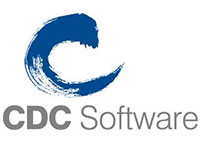
CDC Software has upgraded its sales module, Pivotal Sales Force Automation, with enhancements that the company developed by borrowing from the best practices it observed in its clients, Ehab Samy, director of product management for CRM applications, told CRM Buyer.
In addition, it rolled out these upgrades through the lens of the end-user. That has not always been the case with previous versions, Samy said.
Many of the enhancements, in fact, could be found in various forms in its earlier iterations, “but the workflow was more database-oriented and architecture-focused,” Samy noted. “It was not really designed with the end-user in mind. Rather, the focus was on delivering a comprehensive data set.”
This version is tailor made with the day-to-day needs of the salesperson in mind, he said.
A Familiar Foundation
CDC Pivotal CRM 6.0, for which this enhancement was developed, was built on the .Net Framework. Elements of this backbone are apparent in the sales module: There is still the familiar task-based navigation, embedded Microsoft Office SharePoint Server and Microsoft Office System applications.
There are also the usual tweaks and upgrades to the features within the SFA application. These include new functionality in account management, lead management and processing, configurable opportunity management, executive level forecasting, group level forecasting, individual level forecasting, pricing and discounts, quote and proposal management, order capture, and sales business logic.
Customization vs. Configuration
The application is also much more configurable — as opposed to customizable, Samy said.
That is, features that at one time needed to be customized — perhaps by IT or a systems integration — can now be turned on by the end-user.
“We have raised the bar in blurring the line between configuration and customization with this release,” added Samy. “We took what were the most commonly customized features and turned them into configuration settings within the app.”
For example, there is a My Forecast option now that displays the forecast for a given period — the current quarter let’s say — along with all the different opportunities associated with the forecast and the summary information.
“From there, they can drill into opportunities. We’ve also included a lot of shortcuts to allow users to communicate and interact with the opportunity contacts. They can also drill down from that screen to see a history of that company or lead.”
Mapping All Its Roles
Other functionality has been embedded throughout the module, Samy continued, such as mapping. “Let’s say I am going to be visiting customers. I can pull up a list of these customers and then get driving directions that will map the optimal route.”
Or, offering another example, an account manager can map out where the best opportunities are, he said, if there is a geographic cluster of leads.
Integration With Social CRM
The sales module was also enhanced to better integrate with social CRM, according to Samy.
“So, from the opportunity tab, you can also see all the influences of working on the opportunity,” he pointed out. “I can click on a visual tree that allows me to see any relationships I have within Twitter or Facebook as they might relate to an opportunity and find them.”























































